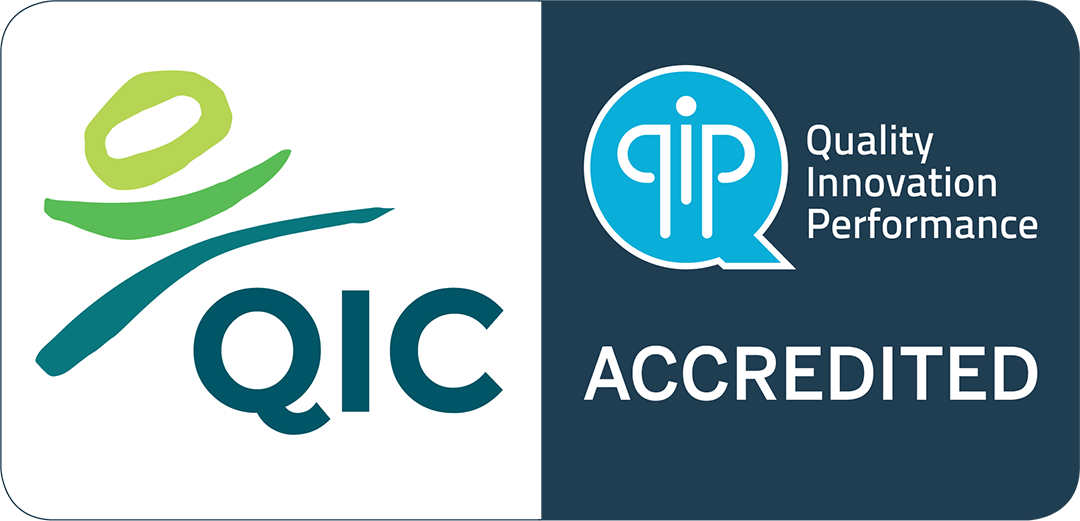Looking for our VicRoads Driver Behaviour Change Programs? Please click here.
Transitional Housing
On this page we’ll tell you about Windana’s Transitional Housing service, and the recovery activities that residents do while living in a Transitional Housing property..
Fast facts.
- Type of program: Stable housing for people in recovery from alcohol and other drugs
- Program length: Leases are for six months to one year
- Location: Houses in Hampton, Cheltenham, Highett and Bentleigh
What is Transitional Housing?.
This is a service that gives a person in recovery from alcohol and other drug dependence a stable, affordable place to live. At Windana, it includes a program that builds on a resident’s strengths and aspirations.
Transitional Housing can help people ease back into living in the community after residential rehabilitation. However, you don’t need to have gone to rehab or be connected to Windana to be eligible.
Transitional Housing also gives parents the opportunity to live with their kids. Our houses are in Melbourne’s southeast – including Hampton, Cheltenham, Highett and Bentleigh. Transitional Housing is a stepping stone to long-term public, community or private rental.
How does it work?.
There are two types of Transitional Housing property:
- Share House
- Single Property.
You can enter either depending on your needs.
Share House
Residents live in our Share House for around six months.
If you stay in the Share House, we’ll give you the tools to set up and participate in the supports for your ongoing recovery. This includes regular case management, going to recovery groups twice a week, seeking Peer Support, sorting out a budget, looking for long-term housing, and completing an Individual Treatment Plan every six weeks.
In the Share House, you’ll live with three other people on their own recovery journeys. Together you’ll be a part of weekly house meetings/dinners, and have regular contact with Transitional Housing staff.
You can move from the Share House into other accommodation you’ve arranged, or into a Windana Single Property (if available).
Single Properties
These offer more independence than the Share House. Up to two residents live together, but if you have children coming you won’t have to share. Maximum length of stay is twelve-months.
There are some lease conditions, including completing an Individual Treatment Plan every three months and engaging in work, volunteering or training. The team will discuss the finer details with you at the right time. You’ll have the full support of Windana’s programs and will need to stay engaged with these.
Eligibility: Is Transitional Housing for me?.
Transitional Housing through Windana might be a good fit if you:
- Are aged 18 years or older
- Are in active recovery from alcohol or other drugs
- Are engaged with an alcohol and other drug professional
- Have not used alcohol or other drugs for a minimum of 90 days at time of applying
- Are willing to engage with Windana for regular case management, and work on your recovery.
There are other options for housing if these points don’t sound like you. Talk to your support worker, call DirectLine on 1800 888 236 (available 24/7) or visit www.directline.org.au. They’ll put you in touch with the Intake and Assessment service that looks after your area. When you contact your Intake and Assessment service, someone will complete an assessment and match you up with the right services.
Referral.
To get started, speak to your alcohol and other drug support worker. They’ll help organise referral.
You can also call Windana Monday to Friday, 9:00am to 4:30pm on 03 9529 7955. There’s a waiting list of up to 12-months for placement.
If you’re at risk of homelessness, you can call a Launch Housing worker on 1800 825 955 (free call and available 24/7) or visit the Launch Housing website that has details of where you can physically visit for assistance.
What you need to do while waiting:
- Stay committed to your recovery and not use any alcohol or other drugs
- Check in with your Transitional Housing worker each week
- Attend recovery and support groups
- Stick to the law
- Attend random Urine Drug Screens
- Keep looking for other accommodation so you can find a suitable home as quickly as possible.
Message from a resident.
Below are a few words from one of Windana’s past Transitional Housing residents.
While everyone’s life is unique, we’re sharing their message for insight into Transitional Housing from a resident’s perspective.
“Living in the Transitional House opened up so many doors for me and allowed me to really set up a solid recovery and future. I was able to study and complete my certificate without having to worry about financial issues or not having stable accommodation, it allowed me to focus on my goals and really save for when I did move out… It’s hard to express in writing what Transitional Housing gave me but I know it helped give me one thing – and that was a life that I never would have imagined…”
More information.
Click below to download a two-page leaflet about the Transitional Housing at home program.
This leaflet includes most of the information on this page and can be printed at home or emailed..
File size is approximately 2MB..
Important to know:
Everyone has the right to play an active role in making decisions that affect them, and to receive the support they need to do so. If you feel you need an advocate now or for the future please go to the Office of the Public Advocate website.
To maintain privacy, the photos on this page are stock images used for illustration and are not connected to our actual properties.
.On this page we’ll tell you about Windana’s Transitional Housing service, and the recovery activities that residents do while living in a Transitional Housing property.
Fast facts
- Type of program: Stable housing for people in recovery from alcohol and other drugs
- Program length: Leases are for six months to one year
- Location: Houses in Hampton, Cheltenham, Highett and Bentleigh
What is Transitional Housing?
This is a service that gives a person in recovery from alcohol and other drug dependence a stable, affordable place to live. At Windana, it includes a program that builds on a resident’s strengths and aspirations.
Transitional Housing can help people ease back into living in the community after residential rehabilitation. However, you don’t need to have gone to rehab or be connected to Windana to be eligible.
Transitional Housing also gives parents the opportunity to live with their kids. Our houses are in Melbourne’s southeast – including Hampton, Cheltenham, Highett and Bentleigh. Transitional Housing is a stepping stone to long-term public, community or private rental.

How does it work?
There are two types of Transitional Housing property:
- Share House
- Single Property.
You can enter either depending on your needs.
Share House
Residents live in our Share House for around six months.
If you stay in the Share House, we’ll give you the tools to set up and participate in the supports for your ongoing recovery. This includes regular case management, going to recovery groups twice a week, seeking Peer Support, sorting out a budget, looking for long-term housing, and completing an Individual Treatment Plan every six weeks.
In the Share House, you’ll live with three other people on their own recovery journeys. Together you’ll be a part of weekly house meetings/dinners, and have regular contact with Transitional Housing staff.
You can move from the Share House into other accommodation you’ve arranged, or into a Windana Single Property (if available).
Single Properties
These offer more independence than the Share House. Up to two residents live together, but if you have children coming you won’t have to share. Maximum length of stay is twelve-months.
There are some lease conditions, including completing an Individual Treatment Plan every three months and engaging in work, volunteering or training. The team will discuss the finer details with you at the right time. You’ll have the full support of Windana’s programs and will need to stay engaged with these.

Eligibility: Is Transitional Housing for me?
Transitional Housing through Windana might be a good fit if you:
- Are aged 18 years or older
- Are in active recovery from alcohol or other drugs
- Are engaged with an alcohol and other drug professional
- Have not used alcohol or other drugs for a minimum of 90 days at time of applying
- Are willing to engage with Windana for regular case management, and work on your recovery.

There are other options for housing if these points don’t sound like you. Talk to your support worker, call DirectLine on 1800 888 236 (available 24/7) or visit www.directline.org.au. They’ll put you in touch with the Intake and Assessment service that looks after your area. When you contact your Intake and Assessment service, someone will complete an assessment and match you up with the right services.

Referral
To get started, speak to your alcohol and other drug support worker. They’ll help organise referral.
You can also call Windana Monday to Friday, 9:00am to 4:30pm on 03 9529 7955. There’s a waiting list of up to 12-months for placement.
If you’re at risk of homelessness, you can call a Launch Housing worker on 1800 825 955 (free call and available 24/7) or visit the Launch Housing website that has details of where you can physically visit for assistance.
What you need to do while waiting:
- Stay committed to your recovery and not use any alcohol or other drugs
- Check in with your Transitional Housing worker each week
- Attend recovery and support groups
- Stick to the law
- Attend random Urine Drug Screens
- Keep looking for other accommodation so you can find a suitable home as quickly as possible.

Message from a resident
Below are a few words from one of Windana’s past Transitional Housing residents.
While everyone’s life is unique, we’re sharing their message for insight into Transitional Housing from a resident’s perspective.
“Living in the Transitional House opened up so many doors for me and allowed me to really set up a solid recovery and future. I was able to study and complete my certificate without having to worry about financial issues or not having stable accommodation, it allowed me to focus on my goals and really save for when I did move out… It’s hard to express in writing what Transitional Housing gave me but I know it helped give me one thing – and that was a life that I never would have imagined…”

More information
Click below to download a two-page leaflet about the Transitional Housing at home program.
This leaflet includes most of the information on this page and can be printed at home or emailed.
File size is approximately 2MB.
Important to know:
Everyone has the right to play an active role in making decisions that affect them, and to receive the support they need to do so. If you feel you need an advocate now or for the future please go to the Office of the Public Advocate website.
To maintain privacy, the photos on this page are stock images used for illustration and are not connected to our actual properties.








